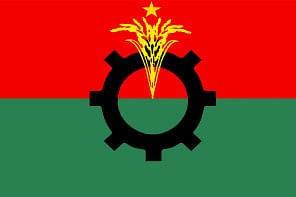Bangladesh not worried at all

Bangladesh is not worried about the threat by Pakistan that it would move the UN to raise the issue of hanging war criminals as the initiative would only expose Pakistan's heinous and brutal wartime role.
“We're not worried at all, absolutely not. I think Pakistan will think twice before going to the UN,” State Minister for Foreign Affairs Md Shahriar Alam said.
If Pakistan goes to the United Nations, it would be exposed to embarrassment, he told The Daily Star in an exclusive interview on Wednesday. “They'll be exposed to the whole world.”
Sartaj Aziz, foreign affairs adviser to the Pakistan prime minister, recently said his country would take up the issue of hanging Jamaat-e-Islami leaders in Bangladesh with the UN Human Rights Council (UNHRC) and other countries.
Speaking in the Senate, he also regretted the executions of “political opponents” by the Bangladesh government, saying that both the “Muslim world and the international community expressed concern” over the issue.
On the support from Bangladesh's friends, including India, in case Pakistan went to the UN, the state minister said: “Of course they will stand by us. Just wait and see what happens if Pakistan goes to the UN.”
About Bangladesh's preparation for facing any probable situation, Shahriar said: “We're always ready. For this, we don't need to take preparation separately. We've no problem.”
Following the execution of Jamaat chief Nizami on May 11, Turkish President Recep Tayyip Erdogan said “such proliferation of hatred went against democratic mentality”. He hit out at European nations over their silence on the execution.
Asked whether Bangladesh was under pressure due to the two reactions, Shahriar said there had been no pressure on the country whatsoever.
He said Turkey was a big facilitator for various multilateral forums and hoped that the country would stop reacting to war crimes trial.
Responding to another question, the state minister said the government would definitely reach out to the Turkish authorities. “We'll also try to find out what political gains they want to make by opposing the trial of war criminals.”
He was also hopeful that Pakistan would cease doing what it has been doing on the war crimes trial.
About the probable role of the Organization of Islamic Cooperation (OIC) with regards to Pakistan's threat, he said Bangladesh was an important member of the OIC.
“There have been many meetings with OIC Secretary General Iyad Ameen Madani since he took over. He has a very clear understanding of the history and the role of Pakistan during the Liberation War in 1971.”
That's why Dhaka does not see any probable reaction from the OIC, he added.
On the possible role of the European Union and the UN, Shahriar said Bangladesh was now a “smart partner” of the two platforms. All the countries will have to find out their own “equilibrium”, he observed.
Apparently showing its affection for the war criminals being tried in Bangladesh, Pakistan before and after the execution of Nizami had said they believed these were “politically motivated” trials. They also called these “flawed trials targeting opposition leaders.”
On the other hand, India has given support to the war crimes trial and said it was Bangladesh's internal issue.
“The issue of war crimes trial is internal to Bangladesh. It has wide popular support. India has also been supportive of a judicial process to address pending issues of retributive justice for war crimes committed during the movement for the independence of Bangladesh in 1971,” said Indian external affairs ministry spokesperson Vikas Swarup after Nizami's execution.
The war crimes trial caused a diplomatic row between Bangladesh and Pakistan. The two countries recently summoned and counter-summoned their envoys in Dhaka and Islamabad issuing statements and counter statements over the Jamaat chief's execution.

 For all latest news, follow The Daily Star's Google News channel.
For all latest news, follow The Daily Star's Google News channel. 








Comments